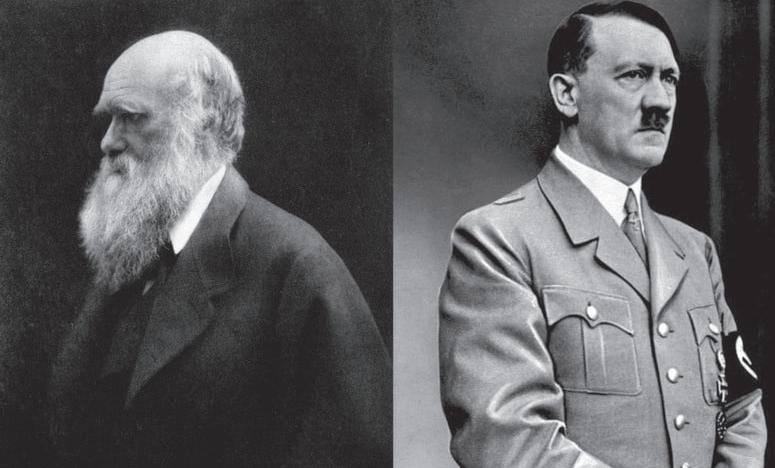
4 minute read
Between Art and Science
Darwinist Hitler
Christian Anton Mayer was his real name. His prose is simple but the concatenation of ideas makes it unreadable at times. That is why a couple of parallel readings of the text are useful, to unravel it.
Advertisement
Mayer, later known as Carl Amery, was a German writer dedicated to science fiction and was also a very ecologically oriented political activist, being a founding member of the Green party and a member of the 47’ group, to which novelists such as the Nobel Prize in Literature winner Günter Grass belonged. His biography is elementary to understanding the concerns that motivated the writing of Auschwitz, the beginning of the 21st century? Hitler as a precursor.
In 2002, just after the publication of that text, Javier Valenzuela wrote in El Pais that humanity can think “there is not enough for everyone to live well”. And that’s Amery’s fear. On the other hand, Valenzuela points to the emergence of right-wing movements:
According to Ramon Campderrich Bravo (2005), there are three elementary concepts in Amery’s book: elitism, social Darwinism, and Eurocentrism. And that is, only for the sake of an alleged political superiority, the Nazi proposal of racial extermination was justified, taken from a misinterpretation of Darwin’s theory of natural selection, and ensured the survival of mankind.
Amery is not trying to warn of a resurgence of Nazism in the 21st, he points out that to face today’s problems, there is a latent possibility that the idea that a nation can survive at the expense of a weaker one may arise again. Thus, the genocide and suffering of non-Western societies have been allowed in exchange for economic profit for the powers through cost reduction and the economic benefit of arms sales, just as the Jewish genocide was allowed to ensure the survival of the Aryan Germans.
These are problems that the West generated in the past for Africa thanks to the implicit idea that African suffering is permissible because they are inhuman, that is, they were considered non-human for centuries. Classism and colonialism appear as two phenomena of social Darwinism born in the Western world to ensure the prevailing social order.

Amery proposes the idea that Nazism has been the most consistent radical attempt at social order. A science fiction writer and environmentalist, the author feared a dystopian ending in which, in order to save an elite of humanity from a global disaster, millions of people would be condemned to death.
Ramon Campderrich understands in the text a division into two sections of humanity: the elites, whether local, national, or international, and the masses. The elite decides by nature the destiny of humanity. However, Campderrich himself falls into natural law when he says that “this order of things is a necessary order.”
On the other hand, with the 2020 pandemic, Alberto Mataran approached Amery’s propositions from a present that the German had prophesied:
This social majority is in permanent dispute with elites who, instead of cooperation, prefer exclusion, who use lies to undermine democracy, and who, to avoid strengthening public services, local economies, and social networks, promote destruction and the law of the strongest [...]. If we want to prevent History from repeating itself in a tragic way, it is essential that no one takes a step back in this dispute and that we increase our efforts so that the inertia of inequality and scarcity do not mark our future.
Even today it is possible that a group of people in power thinks of continuing with the exploitation of natural resources to, in the end, betray the workers by leaving them to their fate in the inhospitable conditions of a cataclysm. Amery invites us to reflect before it happens.
Origenes Romero Porras

Degree in History from the University of Guadalajara. Former Paralympic athlete (2006-2017). Interested in the relationship between art and history. Literary analyst.










